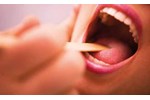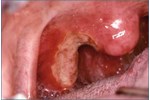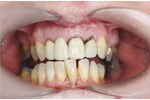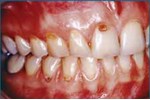
All Clinical


Oral ulceration: aetiology, diagnosis and treatment
Oral ulceration is common and the causes are very varied. In this article, the authors outline the main causes of oral ulceration and the importance of the clinical history to ensure correct diagnosis and appropriate treatment

The origins and evolution of fixed orthodontic appliances
Orthodontics became a discipline in its own right in the late 19th century but the use of appliances to straighten teeth dates back more than 3,000 years. Appliances evolved a great deal over the past two centuries and digital technology means this progress should continue

A matter of taste
This article will demonstrate how complex the sense of taste can be and highlight the effects that a lack of tast can have on a person's quality of life

Does cosmetic dentistry make our patients happy?

Making better mouthguards to prevent sports injury
Custom-made mouthguards best protect the teeth and jaws from trauma during contact sports. Their basic design has remained unchanged for decades but research into their materials and construction, along with an improved design, should make them more effective and comfortable

New teeth in a day and the role of dental nurses
General dental practices are increasingly using implant procedures to replace all the teeth in one arch in one day. Dental nurses need to know about how this is carried out so they can support dentists and patients; such knowledge can also improve their career opportunities

Gingival inflammation and bleeding: an overview
Gingivitis and bleeding gums are commonplace. Gingival inflammation can progress into periodontitis and is also linked to a variety of health concerns. While gingivitis can often be resolved with good oral hygiene, some gum problems require referral for further investigation

Reducing the impact of ageing on dental health
Older people are more likely than previous generations to have their natural teeth and are less willing to accept dentures. Dental care professionals need to consider a number of factors that affect the dental health of older people, and employ preventive measures

Quality assurance for dental radiography
Quality assurance programmes for dental radiography are needed to ensure that images are consistently of a high standard. All aspects of the imaging process must be monitored to reduce the number of repeat radiographs needed, and to ensure radiography is carried out efficiently

Trial of a new prison service triage system

An introduction to air polishing and its benefits
Air polishing is more comfortable and quicker to use than traditional scale and polish cleaning methods, and is suitable for a range of patients. Offering this service could also be an effective way of promoting your practice

Sugar-free gum and dental caries: a high-impact approach
Dental caries remain a major public health problem. However, research has demonstrated that minimal intervention and management approaches can make a dramatic impact in preventing dental caries. Among the most impactful tools in this new approach is sugar-free chewing gum

Airway management in odontogenic infections
Odontogenic infections progress rapidly and patients can deteriorate quickly. Deterioration is due to airway compromise and, if this is not addressed urgently, death from asphyxiation can result. Aggressive airway management reduces morbidity and mortality.

Management of dental fear, anxiety and phobia
Patients are often fearful, anxious or even phobic about visiting the dentist. This can be approached in a number of ways and patients should be assessed to find the most suitable option. If dental anxiety is managed, patient outcomes can be greatly improved





